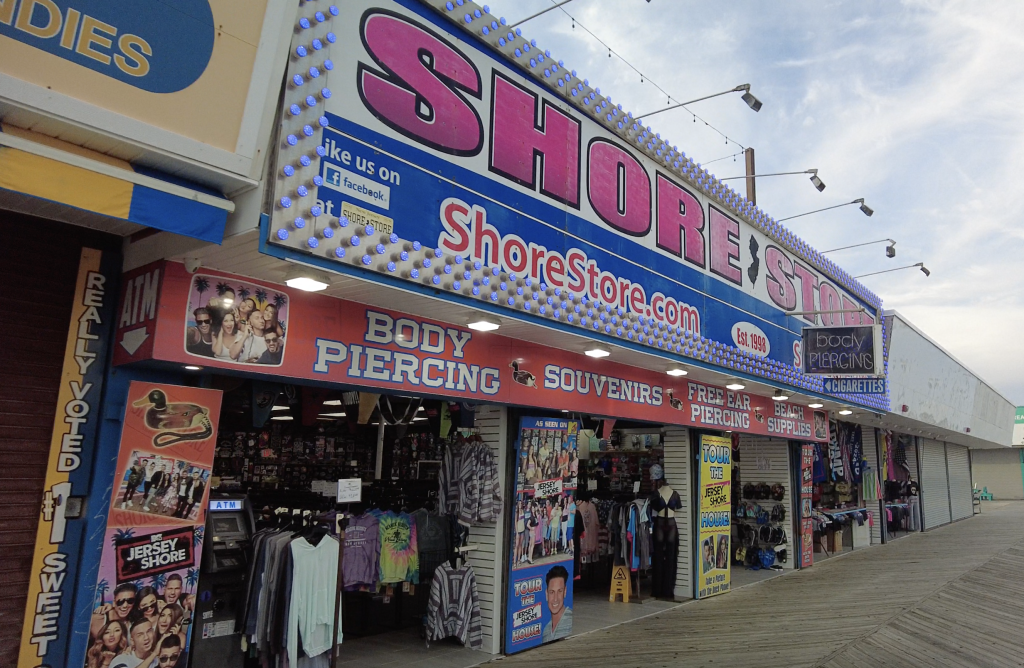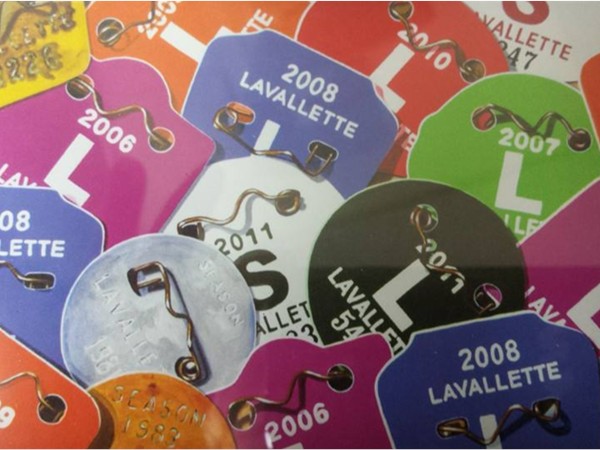The Seaside Heights planning board on Monday night declined to vote on whether to allow the boardwalk’s “Shore Store” to operate a body piercing facility within its retail shop.
The decision – or lack thereof – means litigation between the store’s owner, Danny Merk, and the borough will continue. Officials, however, alluded to the possibility of a settlement being hatched between the two sides. Merk had been seeking a use variance from the board to legitimize his body piercing business, which operated for one season before it was ordered to close.
Body piercing services on the Seaside Heights boardwalk have been restricted since 1999, when an ordinance split the boards into two zones, each of which had specific uses delineated. At the time, body piercing businesses were proliferating up and down the boardwalk and there were few, if any, laws governing health conditions and safety practices. The borough, unable to ensure the businesses were being run safely, decided to allow piercing studios on the southern half of the boardwalk, but not on the north end, which traditionally has been envisioned as a more quiet, residential-oriented portion. The Shore Store is located on the northern half of the boardwalk, where piercing businesses are not permitted.
Merk received approval from the planning board in 2019 to expand the Shore Store to include a neighboring building. At the time, he did not propose to offer body piercings, and was required by the board to return for a new hearing if any uses were to be added to the business. While Merk’s attorney, Anthony M. Pagano, acknowledged his client failed to return to the board for approval of the piercing section, it has been established that Merk did travel to town hall to apply for mercantile licenses and permits to operate his new venture. He also obtained a license from Ocean County to offer body piercings. It is believed, however, that Seaside Heights issued the license in error since piercing services had been prohibited in the zone for two decades. But Merk claims to have been under the impression that he had overcome the legal hurdles despite never having returned to the planning board, where a variance would have been required.
Merk sued the borough after his piercing venture had been shut down.
“The court was probably going to remand this” back to the board, said Pagano. “The court case has been adjourned pending what the board does here.”
The case largely hinges on the court’s interpretation of the application of the doctrine of promissory estoppel, a legal concept which allows a court to “estop” a person or entity from going back on one’s word or promise, even when doing so would normally be legal. Merk’s attorneys have argued that Seaside Heights, by improperly issuing a permit, should be estopped from enforcing the zoning regulation after the fact. The borough has argued that Merk, notwithstanding the issuance of the permit, should have never operated the business without first returning to the planning board to obtain a variance allowing a non-permitted use.
The board on Monday night was tasked with either approving the variance and allowing the business to operate, or denying the variance on its merits, which would have guaranteed the continuation of litigation.
“We’re here now despite the fact that he has two mercantile licenses, a certificate of occupancy, he built it out, and he indeed operated for a year with no complaints,” Pagano told board members. “We’re trying to legitimize that which has already been done.”
Merk has operated boardwalk businesses since the mid-1990s, and gained notoriety during the airing of MTV’s “Jersey Shore” in which cast members worked at the Shore Store for a summer job. He has owned piercing businesses before, Pagano said, during which time the overall number of piercing studios has dwindled in town – currently down to two.
“An argument can be made that the negative stigma around body piercing has decreased since the 1990s,” said Pagano. “The way this is set up in the existing store, it’s not something that is ‘in your face.’ The store itself actually provides a buffer. I was in the room last week, and it feels more like a surgical suite than a piercing room.”
After testimony in the case was complete, no board members made motions in either direction – approval nor denial. The board members had been advised by board attorney Steven Zabarsky that the case should be decided only on its land use element – not the estoppel question, which can only be decided by a court.
“Despite the alleged mistake of a zoning board officer, the applicant had a duty to come back to this board, which frankly would have been a use variance application,” said board member Christopher Vaz, who also serves as borough administrator.
With no board members offering a motion, Vaz summed up his concerns: if the board were to find sufficient reasons to grant a variance to allow a piercing business where it is not normally permitted, other businesses might believe they would also qualify for a variance under state land use statutes. Board members, indeed, seemed uncomfortable setting such a precedent.
Vaz suggested that the best path forward may be to decline to approve a variance – or deny one – and allow the litigation to continue with the chance of settling the matter out of court.
The board ultimately agreed, adjourning the land use case pending the outcome of the litigation.

Advertisement

Seaside Heights & Seaside Park
Reminder: Boardwalk Halloween Costume Contest, Free Carousel Rides This Weekend in Seaside Heights

Police, Fire & Courts
Seaside Heights Woman Indicted for Murder, Dismembering Body in ‘House of Horrors’ Case

Seaside Heights & Seaside Park
Seaside Heights Italian Festival, Columbus Day Parade to Return Oct. 11-13

Seaside Heights & Seaside Park
Dramatic Water Rescues Occur in Seaside Park As Rip Current Warning Remains in Effect

Ortley Beach & North Beaches
Abandoned Private Island ‘Mansion’ in Barnegat Bay Poised for Demolition







